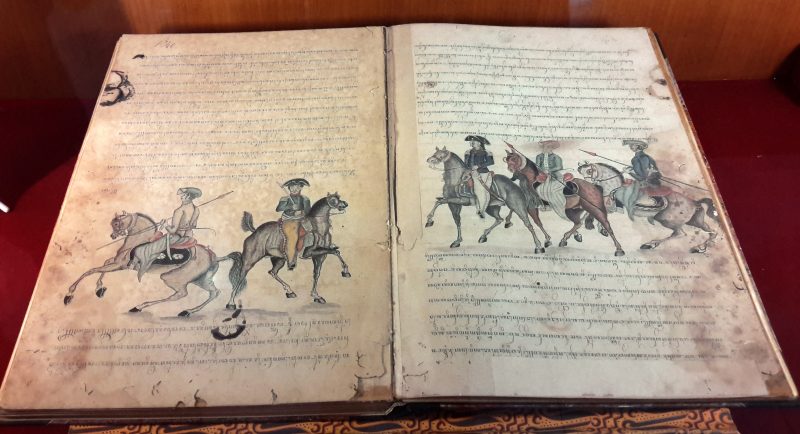CampusNet – Indonesia has a long and rich history of literature, dating back to the kingdom era when written texts played a significant role in shaping knowledge, culture, and governance. However, in modern times, Indonesia faces a major challenge: low reading interest among its people. How did a nation once thriving in literary traditions become one with declining reading habits?
The Golden Era of Literature in the Kingdom Period
During the kingdom era, written works were highly valued as a medium of knowledge, spirituality, and historical documentation. Some notable literary traditions include:
- Hindu-Buddhist Period (7th – 15th century)
- Ancient manuscripts such as the Nagarakretagama (Majapahit era) and Kakawin Ramayana were composed, demonstrating advanced literary culture.
- Palm leaf manuscripts (lontar) were widely used for recording religious teachings, laws, and poetry.
- Islamic Period (15th – 19th century)
- Islamic scholars wrote religious texts, including Sulalatus Salatin (Sejarah Melayu), which chronicled the history of the Malay world.
- The influence of Arabic and Persian literature introduced new forms of storytelling, poetry, and philosophy.
- Colonial Period (19th – early 20th century)
- The rise of printing technology allowed the publication of newspapers and novels, fostering a new wave of intellectual movements.
- Writers such as Raden Adjeng Kartini and Marah Rusli used literature to voice social and political issues.
The Decline of Reading Interest in Modern Indonesia
Despite this rich literary heritage, Indonesia is currently struggling with low reading interest. Several factors contribute to this decline:
- Digital Distraction
- The rise of social media and digital entertainment has shifted attention away from books.
- Short-form content, such as videos and social media posts, has become more appealing than long-form reading materials.
- Education System Issues
- Schools often focus on rote memorization rather than fostering a love for reading.
- Limited access to quality libraries and books, especially in rural areas, affects reading habits.
- Economic Barriers
- Books are relatively expensive compared to digital content, making them less accessible to many people.
- Public libraries are underfunded, limiting access to diverse reading materials.
- Lack of a Strong Reading Culture
- Unlike in past centuries, reading is no longer a central part of daily life for most Indonesians.
- Families and communities do not actively encourage reading habits among children.
Reviving Indonesia’s Literary Culture
To restore Indonesia’s rich literary tradition, several steps can be taken:
- Strengthening Library Access
- More investments should be made in public libraries and digital book platforms.
- Mobile libraries and community reading programs can reach remote areas.
- Reforming Education Policies
- Schools should encourage critical thinking and reading comprehension rather than just memorization.
- Introducing engaging literature into school curriculums can make reading more enjoyable.
- Encouraging Digital Reading
- Promoting e-books and audiobooks can cater to modern digital habits.
- Collaboration with influencers and content creators to popularize literature.
- Cultural Revival Campaigns
- National reading movements, book fairs, and storytelling festivals can reignite interest in literature.
- Celebrating local writers and preserving classic Indonesian texts.
Indonesia’s literary history is a testament to its intellectual and cultural wealth. However, modern challenges have led to a decline in reading interest. By revitalizing educational approaches, improving access to books, and adapting to digital trends, Indonesia can reclaim its literary legacy and foster a future where reading is once again a valued part of society.

